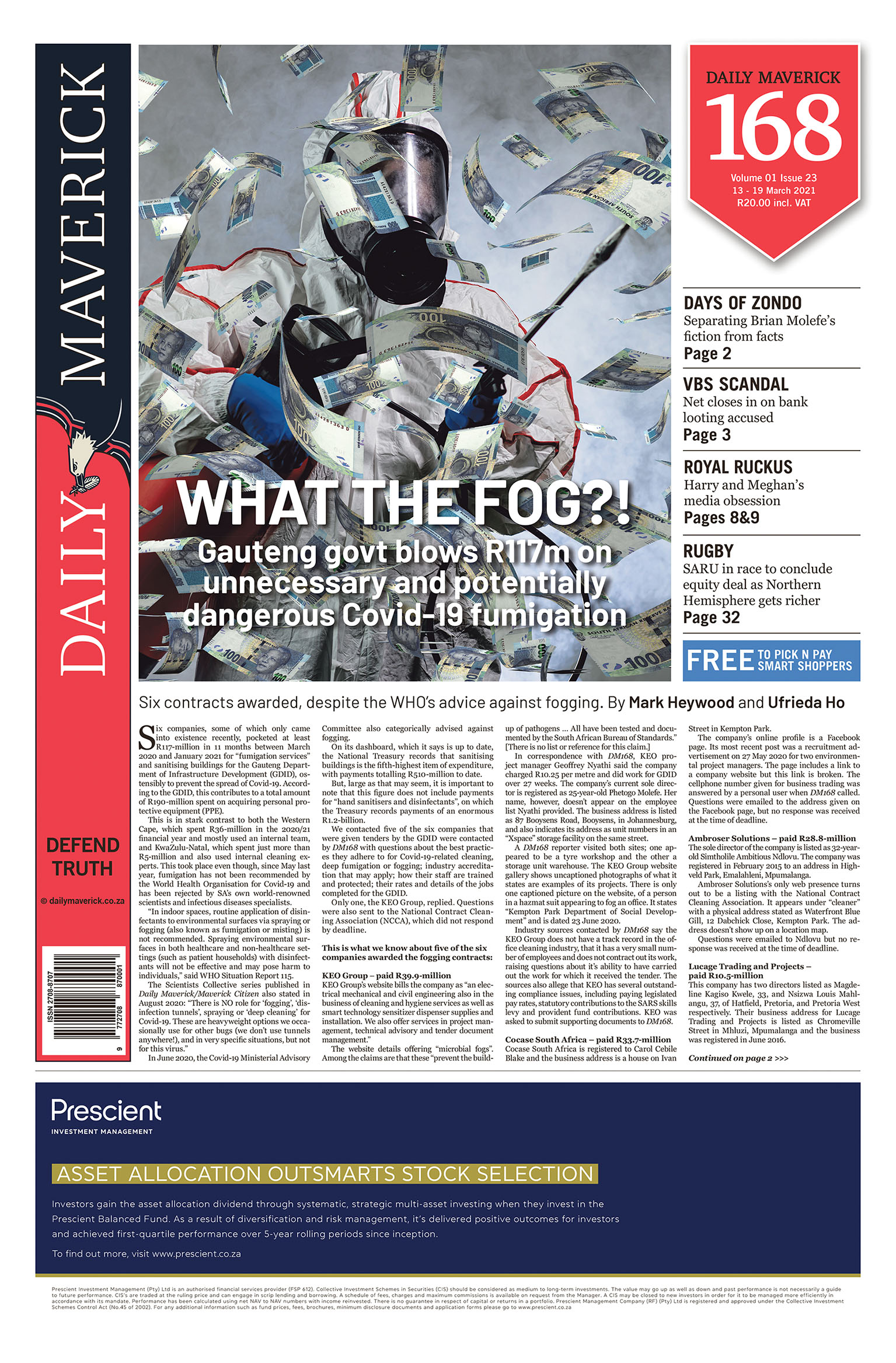First published in the Daily Maverick 168 weekly newspaper.
At some point, the mooted idea seemed to gain some traction. But it soon fizzled out as other considerations took hold – chief among these were the fight against State Capture and, later, the road to the Nasrec elective congress.
When Cosatu spearheaded that call, Treasury was pushing through pension reforms that the trade union federation was none too pleased about. In fact, substantial elements of the scheme had to be placed on ice and its implementation pushed back after Cosatu flexed its muscles.
Yet it is unclear whether Cosatu’s bid to have Treasury reined in was inspired by the pension reform fight in and of itself. What is now known, though, is that the pension reforms kick in next week and the Budget process remains firmly entrenched within Treasury.
An inference can be made that members’ interests, and the shaky political dynamics of that era, may have been at play. Ideological differences aside, Cosatu did make a valid critique about aspects of the Budget process.
One that comes to mind is the riddle of unemployment. The other is an unyielding loyalty to economic orthodoxy – not in the ideological sense, but more on implementation and outcomes. In highlighting this, Cosatu inadvertently touched on two long-running debates in development economics literature: the economic growth conundrum versus social policy.
There is an emerging consensus that economic growth should not be the sole metric used as a measure of progress. There is also a sizeable body of literature and evidence showing the shortfalls of viewing progress through the prism of economic growth alone.
Often, opponents of economic growth as a gauge of advancement point out that, in the mid-2000s, when SA enjoyed a prolonged and sustained period of economic growth, there was a substantial increase in employment, but this increase proved fickle and the total employment rate declined rapidly after the financial crisis of 2008/09.
Critics of orthodoxy also note that this is a symptom of macroeconomic technocrats dominating the policy process and setting the tone while social policy takes a back seat.
But this is not a polemic against the structure – merely an observation to illustrate a point. It is also worth noting that this is not a criticism of the Treasury. This dominance of orthodox macroeconomic technocrats filters down to policy outcomes.
Consider that one of the greatest ironies of this status quo is how it manifests in the middle and upper classes being the biggest beneficiaries of state welfare. It’s what academics call the “bifurcation” of the citizenry. This is most pronounced in the distribution of tax incentives among the employed, contrasted against the piecemeal provisions designed for those living in poverty.
The running joke in academia is that the macroeconomic technocrats create the conditions for economic crises, while social policy practitioners clean up the mess.
Treasury is but one arm of an intricate process, one which is currently not yielding the desired outcomes. Maybe what Cosatu was attempting to motivate for was a rethink and redesign of the process to ensure efficacy and deeper societal benefits.
This is a valid conversation in the SA context, because the country categorises itself as a developing state. But its budgeting posture is sometimes at odds with this stance.
An integrated approach is required, starting with the shape, the size and the form of the Cabinet. Such an outlook would give equal footing to macroeconomic and social policy considerations as mutually reinforcing. A fundamental realignment and streamlining of portfolios is a necessity.
The current model is proving ineffectual and puts a dent in confidence. This is most notable in the size of the Cabinet and the distribution of talent therein.
The pitfalls of deploying the best candidate picks for the Treasury while appointing the politically inclined to the rest of the Cabinet are catching up with South Africa. Until that is addressed, fingers will forever point at the Treasury and the Budget, while the underlying contributors to this state of affairs remain unaddressed.
Cosatu was justified in its agitation, but it was directed at the symptom, not the cause. DM168
This story first appeared in our weekly Daily Maverick 168 newspaper which is available for free to Pick n Pay Smart Shoppers at these Pick n Pay stores.


















 Become an Insider
Become an Insider
Comments - Please login in order to comment.